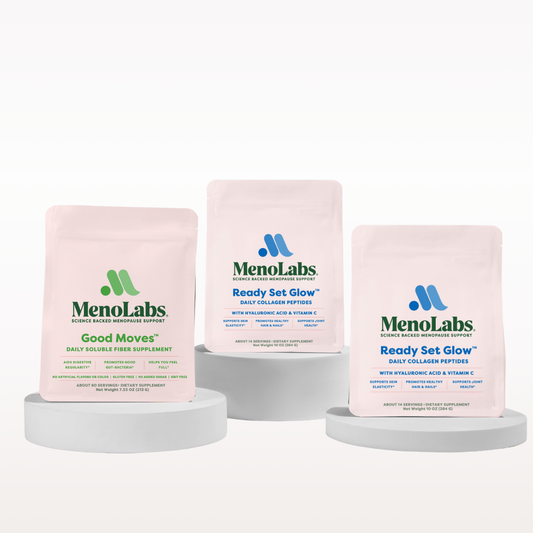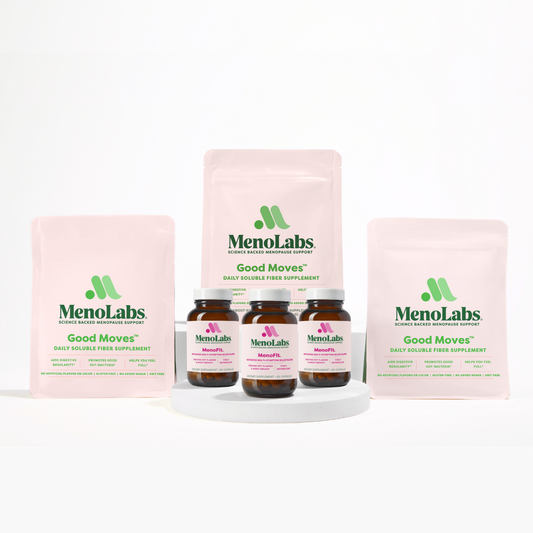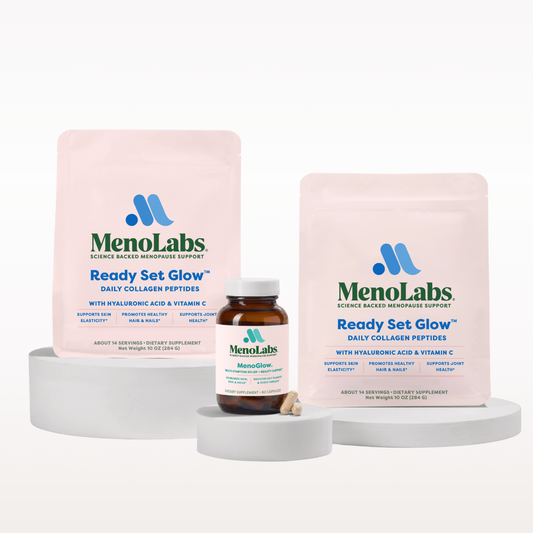As a society, we tend not to talk about sexual health in midlife and beyond — especially women’s sexual health during menopause. While many women are searching for ways to continue enjoying an active sexual life as they get older, most of us don't have enough information on the subject.
As you enter menopause, you may wonder how this sudden shift in your hormones is going to affect your sex life and sexual health. These four symptoms are common among women in peri/menopause, though that doesn't mean you'll experience all or any of them. If you have specific sexual health concerns, speaking to your doctor is always a great way to start.
Low Libido
This probably won’t come as a shock to you, but it is important to address and understand. As women enter menopause, their sexual reproductive hormones begin to deplete. When this occurs, it decreases a woman’s sex drive, making her less likely to desire to engage in sex or sexual activities. It may become difficult for women to get aroused or to maintain arousal during sexual activities.
If you experience this loss of libido, you may feel some embarrassment, and that’s okay. It’s not a comfortable position to be in, but it shouldn’t prevent you from enjoying a healthy, active, safe sex life. Talking to your partner about your sexual concerns is the first step to taking a proactive approach to solving those issues.
Vaginal Dryness
Low libido tends to go hand in hand with vaginal dryness. When estrogen starts to deplete, it lessens the blood flow to the vagina. When blood circulation to the vagina is lowered, it makes it more difficult for the vagina to produce natural lubricants. This causes the lining of the vagina to become dry and shrink to a smaller size. Vaginal dryness can make sexual activity feel uncomfortable and if severe enough, it can turn into vaginal atrophy, which can make sex quite painful. This is due to the friction of the vaginal lining that’s created during penetrative sexual activities. Using commercial lubricants can help reduce this discomfort. So talk to your partner about introducing some commercial products into the bedroom.
Vaginal Atrophy
Vaginal atrophy is an extreme case of vaginal dryness. The lining of the vaginal canal becomes dry, thin, and inflamed which can make sexual activity painful as well as urination. Vaginal atrophy can be scary, but there are ways to help ease some of that discomfort. Commercial lubricants can help women lessen the discomfort of friction during penetrative sexual activity. There are also topical creams and medications on the market that can help support blood flow stimulation to the vagina. Speak with your doctor first before trying any prescription products or topicals to fully understand the benefits and the side effects.
Genitourinary Syndrome of Menopause (GSM)
Genitourinary Syndrome of Menopause (GSM), is a relatively new term that describes a variety of sexual and urinary health problems that some women in menopause may experience. Symptoms of GSM include vaginal dryness, burning, itching, sexual discomfort, pain during sex, pain during urination, urinary tract infections, dysuria, and urinary urgency.
There are a variety of medications that are available to you to address these concerns. If you experience pain, itching, or burning when urinating, please speak with your doctor immediately as this could either mean that you have contracted a urinary tract infection or you are highly susceptible to contracting one.
Remember to Keep Calm
It can be challenging to address sexual health concerns, and it can be especially challenging to talk about them with your doctor or your partner. Whatever embarrassment or shame or panic you may feel, remember, it’s okay. Keep calm, keep a level head, and keep your partner(s) in the loop about what your body needs. Open communication is the key to getting over the first uncomfortable hurdle.
Related Products
Blend Besties Bundle
Fresh Start Bundle
4.7 / 5.0
(553) 553 total reviews












